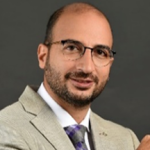This study empirically examines the use of capital flows as a tool of economic statecraft by the Gulf Arab states in Egypt, with a particular focus on Qatar's investments from 2005 to 2023, encompassing phases of support, the suspension of diplomatic relations, and renewed diplomacy. While empirical research on the Gulf states' use of economic statecraft is growing, significant gaps remain. This study tests the hypothesis that Qatar/Gulf investments have been used as instruments of economic statecraft. It provides a seminal exploration of the impact of political frictions between Egypt and Qatar on FDI inflows from Qatar to Egypt. Using panel data on FDI flows to Egypt, the study employs a gravity model covering the period from 2005 to 2023. The analysis evaluates the effects of several political shocks, such as the Qatar blockade and the Al Ula Agreement, on capital flows. The findings reveal that Qatar's investment flows into Egypt, as well as those from other Gulf countries, hinge on the state of bilateral relations and the presence of like-minded administrations. This confirms that capital flows are part of the Gulf's economic statecraft. However, the manipulation of capital flows is comparatively less adaptable than economic aid and portfolio investments in responding to political tensions.

Research Fellows
Ahmed Rashad
Economic Advisor, UAE Ministry of Economy and...


